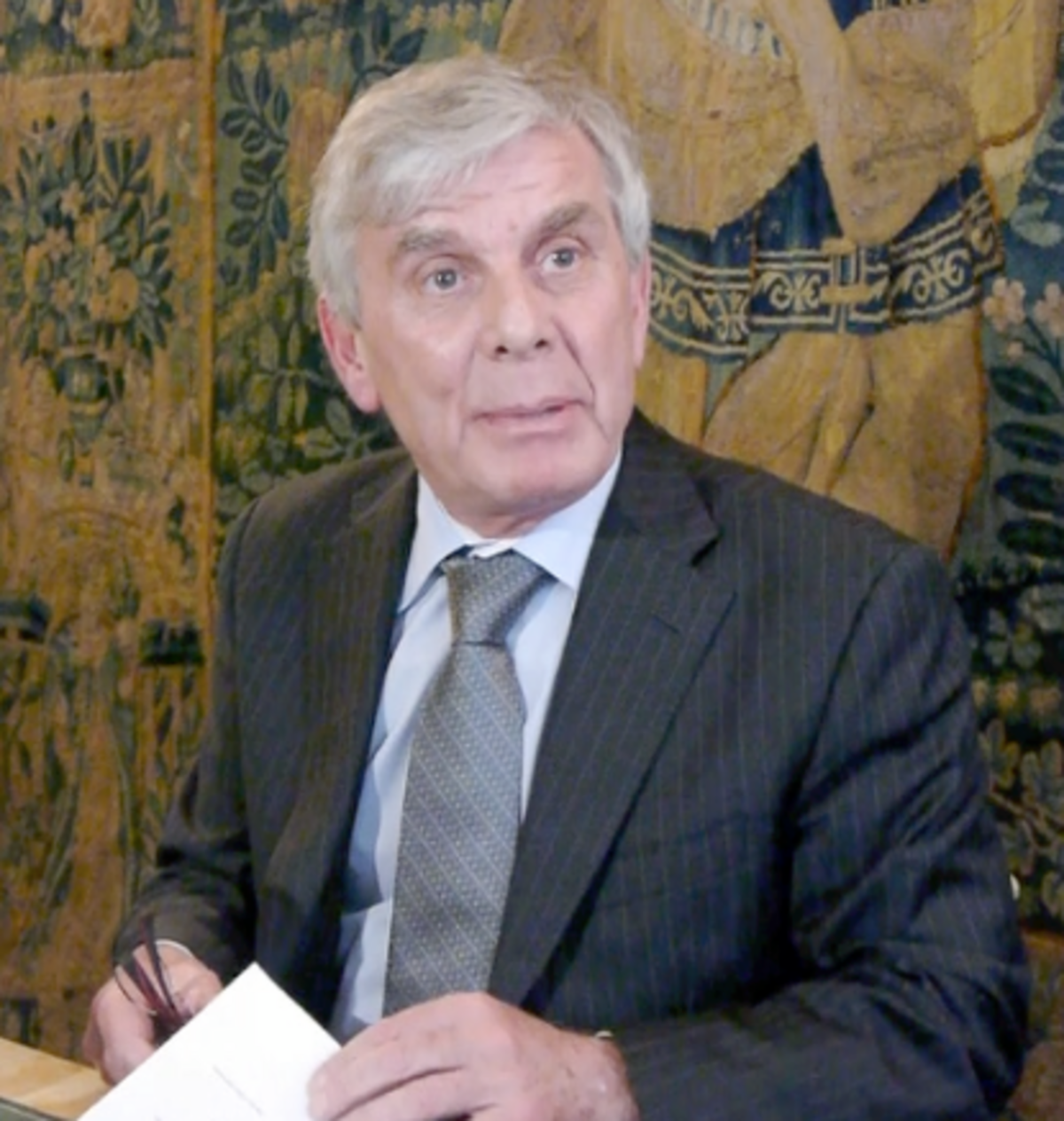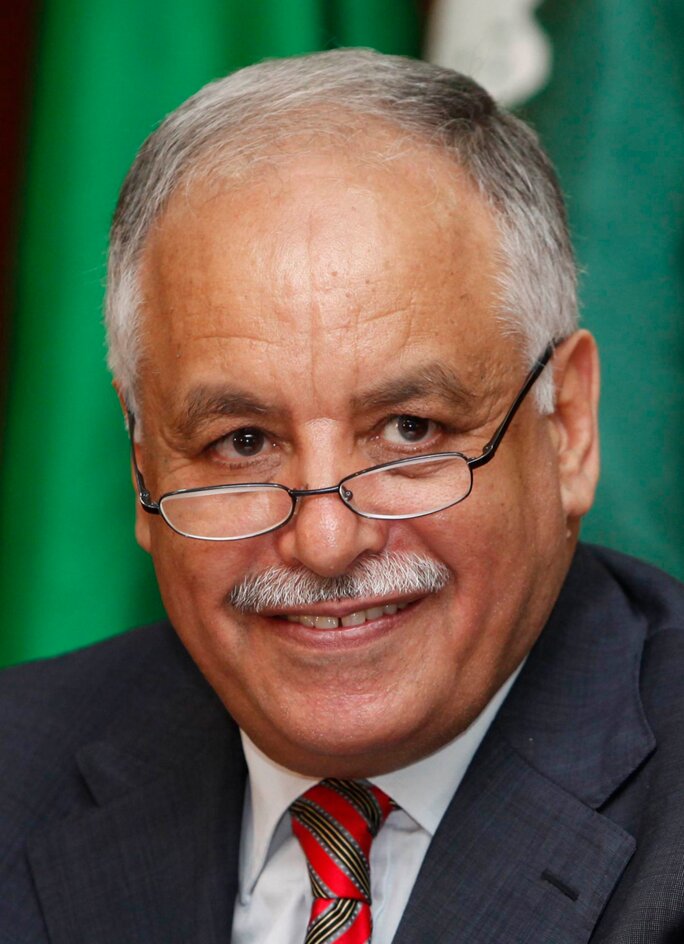Former Libyan Prime Minister al-Baghdadi al-Mahmoudi made contact with the judge investigating illegal election campaign funding in France just two days before he was controversially extradited to Tunisia.
Mahmoudi used his lawyer to inform French judge Renaud Van Ruymbeke (1) that he wanted to “reveal all” about illicit payments and the “real causes” of NATO's intervention that helped topple Colonel Muammar Gaddafi's regime in Libya in 2011.
“He was going to be brought to speak about the financing of election campaigns and questions of personal enrichment,” his lawyer Marcel Ceccaldi told Mediapart.
Mahmoudi has already confirmed that Gaddafi's regime secretly provided 50 million euros for Nicolas Sarkozy’s 2007 election campaign.
However last Sunday – two days after Mahmoudi's lawyer made contact with the French judge – the former Libyan premier was extradited from Tunisia to Libya, despite the fact that Tunisia's president had not signed the extradition decree and amid claims that the country's senior state prosecutor was not aware of the move. The extradition was attacked by human rights groups who fear Mahmoudi will not get a fair trial in Libya and that he might face torture.
Mahmoudi served as Secretary of the Libyan General Peoples’ Committee, a post equivalent to prime minister, from March 2006 until he fled Libya to Tunisia last August when Gaddafi's forces lost control of Tripoli. He was initially arrested and jailed by the Tunisian authorities for illegal entry into the country, a charge that was subsequently overturned, but had been held in a jail near Tunis pending his extradition.

Now back in Libya, Mahmoudi was taken to hospital after his initial interrogation during which, according to Ceccaldi, he was “hit and insulted”. His lawyer, who says he fears for the welfare of his client, last saw Mahmoudi on June 16th.
“When I met him in his Tunisian prison Mr. Baghdadi Mahmoudi told me, a little formally, that he wanted to be heard by a French investigating judge,” Ceccaldi said. “He asked me to make contact, which I did, last Friday, with Judge Renaud Van Ruymbeke. This was not a delaying tactic. He was awaiting extradition but that was not the issue.”
Ceccalidi told Mediapart that Mahmoudi's aim was to set the record straight. “On the real causes of the NATO intervention in Libya, on the reasons for the furious determination [in toppling Gaddafi's regime] shown by Nicolas Sarkozy and, finally, on the real nature of Franco-Libyan relations. He was going to be brought to speak about the financing of election campaigns and questions of personal enrichment.”
The lawyer added: “On Thursday one of my Tunisian lawyer colleagues Salah Hassen was able to see Mr. Baghdadi in prison, and the former prime minister told him of his willingness to 'reveal everything' to the French judge.” Then the extradition intervened a few days later. Ceccaldi says the process was pushed through out of “Islamic solidarity” on the part of the Tunisian government for the new regime in Libya.
It was in early May that Mahmoudi confirmed that Gaddafi's regime had secretly provided 50 million euros for Nicolas Sarkozy’s 2007 election campaign. "This financing by Mr. Gaddafi and Libya is certified by an official document,” said Mahmoudi, speaking via another lawyer Beshir Essid at the time in response to questions submitted to him by Mediapart.

Enlargement : Illustration 2

Mahmoudi himself validated the proposition to finance Sarkozy’s election bid as outlined in a document published by Mediapart on April 28th.
The document, signed by the then head of Libya's foreign intelligence agency, Moussa Koussa, detailed how Gaddafi’s regime had agreed to “support the electoral campaign” of Nicolas Sarkozy for the 2007 presidential elections, and for the “sum of fifty million euros”.
Essid said Mahmoudi expressed surprise at Sarkozy’s commitment to the war against the Gaddafi regime. "He does not understand Mr. Sarkozy’s bitterness and his determination to be one of the main people leading the attack on the country that financed, supported and helped him for his campaign to the tune of 50 million euros," Essid said.
Yet another of Mahmoudi's lawyers, Mabrouk Kourchid, said at that time that his client believed his detention in Tunisia was due to his knowledge of Gaddafi’s funding of Sarkozy’s campaign. Kourchid quoted Mahmoudi as saying: "My arrest and my detention in Tunisia were instigated by the French president [then President Sarkozy, editor's note]so that the details of the financing of his 2007 campaign are not revealed."
--------------------------
1: Judge Renaud Van Ruymbeke is investigating allegations that the 1995 presidential election campaign of former French Prime Minister Edouard Balladur was illegally funded using commissions from arms sales. Nicolas Sarkozy was Balladur's campaign spokesman. For more, see the end of this article and the list of links to other stories.
Amnesty International warning
Amnesty International had warned that if Mahmoudi were to return to Libya, which has launched two extradition demands against him, he would be exposed to "real risks of serious violations of human rights, in particular torture, an extra-judiciary execution and an unjust trial".
Tunisian non-governmental organisations had also called on Tunis not to give Mahmoudi up to the Libyan authorities given the unstable security situation in the country.
During a visit to Tripoli in January, Tunisian President Moncef Marzouki said his government was seeking to "make sure 1,000% that there is a fair trial, and that there's an independent judiciary" before sending Mahmoudi back to Libya.
Sarkozy's links with the Libyan regime have already emerged from a judicial investigation into suspected illegal political funding via commissions paid in French weapons sales abroad.
The investigation, led by judges Renaud Van Ruymbeke and Roger Le Loire, centres on the sale by France of submarines to Pakistan and frigates to Saudi Arabia, mounted during the 1990s. The magistrates suspect that part of commissions paid to intermediaries in the deals were secretly re-routed to fund the 1995 presidential election campaign of former French Prime Minister Edouard Balladur. They have collected evidence indicating that these so called retro-commissions re-appeared as unaccountable cash sums drawn from Swiss bank accounts.
Nicolas Sarkozy served under Balladur as budget minister and was his presidential election campaign spokesman. Both he and Balladur have denied involvement in illegal funding of the campaign, which was led as a breakaway challenge against fellow conservative Right rival Jacques Chirac, whose campaign was backed by the majority RPR Gaullist party.
Last September, Balladur’s presidential election campaign director, Nicolas Bazire, and an advisor to Sarkozy at the budget ministry, Thierry Gaubert, both longstanding friends of Sarkozy, were placed under investigation, along with arms dealer Ziad Takieddine, over their involvement in the suspected scam, which has become dubbed in France as the 'Karachi Affair' (for more on this, see Mediapart's Q&A guide here and a video presentation here).
Several years after the Balladur government-brokered arms deals, Takieddine again played a role as a key intermediary for weapons contracts mounted by Sarkozy’s inner political team, between 2002 and 2009, with several Arab countries, and notably Libya.
For more about the issues raised in this article, click on the links to Mediapart's investigations below:
French government stalls Interpol call for arrest of Gaddafi funding chief
Sarkozy attacks Mediapart over Gaddafi funding revelations
Gaddafi funding of Sarkozy election campaign: the proof
Exclusive: secret report describes Gaddafi funding of Sarkozy's 2007 election campaig
French IT group Bull horned by Libyan internet espionage deal
French judge finds key evidence in illegal funding probe
Net closes in on French presidency after funding 'scam' arrests
Arms dealer probe brings illegal funding scandal closer to Sarkozy
The secret financier who brings danger to the Sarkozy clan
Sarkozy, the arms dealer, and a secret 350 million-euro commission
Exclusive: how Sarkozy's team sought grace for Gaddafi's murderous henchman
Exlusive: how President Sarkozy's team dealt with Gaddafi
When Total paid the bill for the Elysée's secret emissary
The French-built stealth offroader that may be hiding Gaddafi
---------------------------
English version: Michael Streeter


